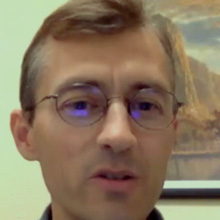Nuestro invitado en este vis a vis, es escritor y psicólogo especializado en el humor, el bienestar y el potencial humano.
Es académico, creativo, conferenciante-formador y emprendedor. Ha publicado tres novelas, varios monográficos de no ficción, libros para niños, además de artículos en prensa y en revistas académicas (parece que tenemos. mucho en común).
Es director de la escuela de Mindfulness ModoSer, cofundador de la consultora de formación Humor Positivo. Este punto nos une también, porque con el otro cofundador de Humor Positivo, el amigo Jesús Damián Fernández Solís, hemos hecho varias cosas juntos, como prologar mi libro “Gracias por enseñar. Prácticas para educar con humor”, ha sido entrevistado también para esta sección, etc.
Pero sigo presentando a mi invitado. En 1993 se licenció en Psicología Social (London School of Economics), realizando una primera tesina sobre el tema de la risa. Obtuvo posteriormente un Master en Antropología Social (Oxford University) y un Doctorado en Ciencias Políticas y Sociales (Instituto Universitario Europeo de Florencia) con una tesis doctoral sobre la risa y el humor.
Y por último me complace señalar que se ha convertido en estos años en uno de los conferenciantes más demandados en España y en el extranjero para hablar de temas como el sentido del humor y la psicología positiva, dando cientos de ponencias en foros tan prestigiosos como el Royal Institution of Great Britain, La Casa Encendida de Madrid, los cursos de verano de la UIMP o las conferencias TED.
Dicho lo anterior, solo me resta decir que me siento honrado de tener en este vis a vis a Eduardo Jáuregui Narváez.
PP: ¿Te gusta que te hagan entrevistas?
JÁUREGUI: De vez en cuando, y según el entrevistador :)
PP: Cruzaré entonces los dedos para que te caiga bien el entrevistador. Comienzo. En este año 2014, ¿cómo ves el estado del humor en España, en televisión, radio, teatro, literatura y gráfica?
JÁUREGUI: Como en España la economía está enferma, el humor goza de buena salud. Los aspectos más ridículos de nuestro sistema económico y político son cada vez más patentes. Y necesitamos reír.
PP: Me imagino. Sin embargo, me entró una duda. Desde el punto de vista de tu respuesta, cuando esté perfecta la economía y los políticos no sean tan ridículos, ¿dejaremos de reír y de hacer humor? No, es broma. Sigamos. En todos los países de América Latina se dice: "Mi país es un pueblo de humoristas", "en mi país, tú mueves una piedra y sale un humorista", etc. ¿En España se dice lo mismo?
JÁUREGUI: No, pero creo que España es un país con una buena tradición humorística. Desde Cervantes a Dalí, Buñuel o Almodovar, nuestros artistas más internacionales a menudo tienen vena cómica. Algo se ha perdido, creo, en las últimas décadas. Creo que nos hemos querido volver demasiado "serios". Pero a pesar de todo, hay mucho humorista suelto por aquí.
PP: Es cierto, hay muchos humoristas sueltos y buenos, como Faemino y Cansado, Tricicle, Forges, José Mota, Gallud Jardiel, El Roto, Junco, El Gran Wyoming, Eva Hache, Ana Morgade, Gomaespuma, etc., etc. Bueno, en un final los latinoamericanos tenemos la sangre vuestra en mayor o menor medida, así que tenemos que parecernos. Otra cosa, ¿crees que sea cierta la conocida frase: "Es más fácil hacer llorar que hacer reír?”.
JÁUREGUI: En absoluto. Es mucho más fácil hacer reír. Basta entrar en cualquier cafetería para observarlo entre las personas reunidas en torno a las mesas. Otra cosa es hacer reír con un “chiste” enlatado o una escena de ficción. Eso requiere más arte, no sé si más o menos que el de los autores trágicos.
PP: Tienes razón. Debí preguntarte si es más fácil hacer drama o tragedia que comedia. Porque el mundo de la risa es mucho más amplio que el del humor. Uno ríe por diplomacia, por alegría, por triunfo, por alivio, por nervios, por ser amigable, etc. Es decir, por razones alejadas de la risa provocada por el humor. Pero sigamos, ¿cuándo decidiste dedicarte a estudiar y trabajar con el humor?
JÁUREGUI: Comencé con un proyecto en mis estudios de licenciatura en psicología, en la London School of Economics. Descubrí que el humor y la risa seguían siendo un gran misterio para la ciencia. Y me enganché al tema.
PP: Te entiendo, es muy atractivo el tema. Por suerte, el humor ganó un gran estudioso en ese momento. Un duda antigua, ¿el humorista nace o se hace?
JÁUREGUI: Se nace, pero como ya hemos nacido todos... En serio, el sentido del humor es parte del bagaje genético del ser humano (y de hecho, ya existe, en versión más sencilla, en muchas otras especies que juegan y “ríen”). Lo que pasa es que luego el ingenio se puede entrenar más o menos, junto con otras capacidades recomendables para la profesión de humorista.
PP: Que conste que para mí, algunas especies de animales, tienen sentido del humor. Pero es un tema para otra oportunidad. Seguimos. ¿Cuál ha sido el mejor y el peor momento de su carrera hasta el día de hoy?
JÁUREGUI: Los mejores han sido los momentos de risas descontroladas con los participantes de mis cursos. Los peores cuando nos hemos dado con algún cliente cuyos empleados estaban condicionados por la visión excesivamente solemne de sus directivos. Recuerdo una conferencia, un lunes por la mañana, con los altos directivos de una multinacional, en el que prácticamente nadie reía de nuestras bromas y juegos -si no reía la directora general (¡que no reía nunca!).
PP: Ja, ja, ¡me ha pasado en mis Charlas! Es increíble. Eduardo, como estudioso del humor, ¿te ríes fácil? ¿Con qué tipo de chistes?
JÁUREGUI: Yo sí tengo la risa fácil. Pero no tanto con los chistes, más con el humor surrealista y conversacional improvisado.
PP: ¿Puedes contarme alguna anécdota relacionada con tu profesión?
JÁUREGUI: Las más divertidas son los eventos que montamos en torno al "Día Internacional de la Diversión en el Trabajo", una efeméride que aun no es tan famosa como las Navidades o Halloween, pero que algún día lo será. Llevamos desde 2008 promocionándola en España, y ya son muchas las empresas y profesionales que la celebran. Cada año solemos organizar un acto callejero. Creo que el más divertido fue el 2011, que organizamos "El Encierro de la Crisis", en el que la mismísma crisis económica nos perseguía por las calles de Madrid como en el encierro de los sanfermines. Al final nos vengamos, "manteándola" en una plaza pública.
PP: Me encantó eso. Ojalá se extienda por toda España, Europa y llegue al mundo entero que tanto lo necesita. Y para ir cerrando este vis a vis, ¿con cuáles colegas te identificas?
JÁUREGUI: Mis favoritos son Chaplin, Woody Allen y los Monty Python.
PP: Muy buen gusto. Y por último, ¿qué me aconsejaría a mí como humorista?
JÁUREGUI: No fiarse de todo lo que se escribe en la web sobre la risa y el humor (y sobre todo sus beneficios). Hay que leerse los estudios académicos, como los que resumen Rod Martin en su libro La Psicología del Humor.
PP: Sí, es cierto. En la web hay mucha porquería y desinformación. Y sobre Rod Martín, te confieso que “La Psicología del humor” es uno de mis libros de cabecera. Gracias por el consejo. Nuestros lectores te lo van a agradecer cuando lo lean.
Bueno, mil millones de gracias, querido Eduardo, por tu tiempo, que sabemos es escaso y por la amable atención que nos diste.
Te deseo mucha salud y que continúen tus éxitos personales y en especial con Humor Positivo.
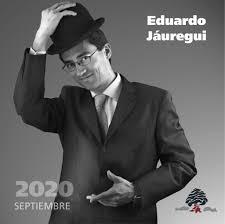
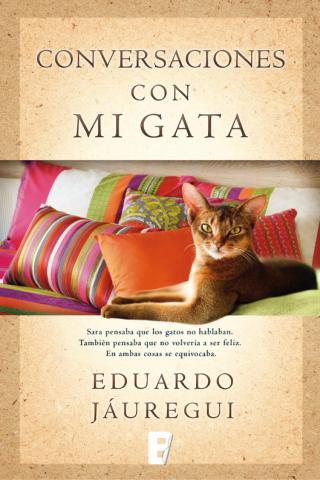
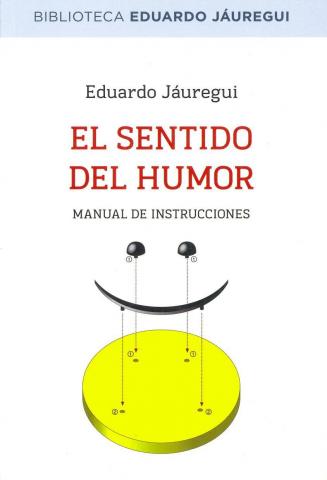
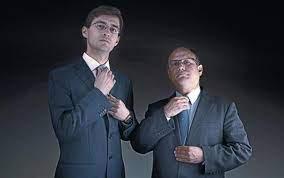
Interview with Eduardo Jáuregui
By Pepe Pelayo
Humor and laughter remained a great mystery for science
Our guest in this “dialogue” is a writer and psychologist specialized in humor, well-being and human potential. He is an academic, creative, lecturer-trainer and entrepreneur.
He has published three novels, several non-fiction monographs, children's books, as well as articles in press and academic journals (it seems we have a lot in common).
He is director of the ModoSer Mindfulness school, co-founder of the training consultancy Humor Positivo. This point also unites us, because with the other co-founder of Humor Positivo, our friend Jesús Damián Fernández Solís, we have done several things together, such as prologue my book “Thank you for teaching. Practices to educate with humor”, has also been interviewed for this section, etc.
But I continue to introduce my guest. In 1993 he graduated in Social Psychology (London School of Economics), completing his first thesis on the topic of laughter. He subsequently obtained a Master's degree in Social Anthropology (Oxford University) and a Doctorate in Political and Social Sciences (European University Institute of Florence) with a doctoral thesis on laughter and humor.
And finally, I am pleased to point out that in recent years he has become one of the most sought-after speakers in Spain and abroad to talk about topics such as sense of humor and positive psychology, giving hundreds of presentations in such prestigious forums as the Royal Institution of Great Britain, La Casa Encendida in Madrid, the UIMP summer courses or the TED conferences.
Having said the above, it only remains for me to say that I feel honored to “talk” with Eduardo Jáuregui Narváez.
PP: Do you like being interviewed?
JÁUREGUI: From time to time, and according to the interviewer :)
PP: So I'll keep my fingers crossed that you like the interviewer. Beginning. In this year 2014, how do you see the state of humor in Spain, on television, radio, theater, literature and graphics?
JÁUREGUI: As the economy is sick in Spain, humor is in good health. The most ridiculous aspects of our economic and political system are becoming more and more evident. And we need to laugh.
PP: I imagine. However, I had a doubt. From the point of view of your answer, when the economy is perfect and politicians are not so ridiculous, will we stop laughing and making humor? It is not a joke. Let's keep going. In all Latin American countries it is said: "My country is a town of comedians", "in my country, you move a stone and a comedian comes out", etc. In Spain they say the same thing?
JÁUREGUI: No, but I think that Spain is a country with a good humorous tradition. From Cervantes to Dalí, Buñuel or Almodovar, our most international artists often have a comic streak. Something has been lost, I think, in the last few decades. I think we wanted to become too "serious." But despite everything, there are a lot of comedians loose around here.
PP: It's true, there are many loose and good comedians, like Faemino y Cansado, Tricicle, Forges, José Mota, Gallud Jardiel, El Roto, Junco, El Gran Wyoming, Eva Hache, Ana Morgade, Gomaespuma, etc., etc. Well, in the end we Latin Americans have your blood to a greater or lesser extent, so we have to be alike. Another thing, do you think the well-known phrase is true: "It is easier to make people cry than to make them laugh?"
JÁUREGUI: Not at all. It's much easier to make people laugh. You just have to enter any cafeteria to see it among the people gathered around the tables. Another thing is to make people laugh with a canned “joke” or a fictional scene. That requires more art, I don't know if more or less than that of tragic authors.
PP: You're right. I should have asked you if it is easier to do drama or tragedy than comedy. Because the world of laughter is much broader than that of humor. One laughs out of diplomacy, out of joy, out of triumph, out of relief, out of nerves, to be friendly, etc. That is, for reasons far removed from laughter caused by humor. But let's continue. When did you decide to dedicate yourself to studying and working with humor?
JÁUREGUI: I started with a project during my undergraduate studies in psychology, at the London School of Economics. I discovered that humor and laughter were still a great mystery to science. And I got hooked on the topic.
PP: I understand you, the topic is very attractive. Luckily, humor gained a great scholar at that time. An old question, is the comedian born or made?
JÁUREGUI: You are born, but since we are all born... Seriously, the sense of humor is part of the genetic background of the human being (and in fact, it already exists, in a simpler version, in many other species that play and "laugh"). What happens is that then wit can be trained more or less, along with other skills recommended for the profession of comedian.
PP: For the record, for me, some species of animals have a sense of humor. But it is a topic for another time. We continue. What has been the best and worst moment of your career to date?
JÁUREGUI: The best have been the moments of uncontrolled laughter with the participants of my courses. The worst when we have encountered a client whose employees were conditioned by the excessively solemn vision of their managers. I remember a conference, on a Monday morning, with the senior managers of a multinational, in which practically no one laughed at our jokes and games - except for the general director (who never laughed!).
PP: Ha ha, it's happened to me in my Talks! Is incredible. Eduardo, as a student of humor, do you laugh easily? With what kind of jokes?
JÁUREGUI: I do have an easy laugh. But not so much with the jokes, more with the surreal and improvised conversational humor.
PP: Can you tell me any anecdotes related to your profession?
JÁUREGUI: The most fun are the events we organize around the "International Day of Fun at Work", an event that is not yet as famous as Christmas or Halloween, but that one day will be. We have been promoting it in Spain since 2008, and there are already many companies and professionals who celebrate it. Every year we usually organize a street event. I think the most fun was in 2011, when we organized "El Encierro de la Crisis", in which the same economic crisis followed us through the streets of Madrid as in the San Fermines bull run. In the end we took revenge, "keeping her" in a public square.
PP: I loved that. I hope it spreads throughout Spain, Europe and reaches the entire world that needs it so much. And to close this “dialogue”, which colleagues do you identify with?
JÁUREGUI: My favorites are Chaplin, Woody Allen and Monty Python.
PP: Very good taste. And finally, what would you advise me as a comedian?
ÁUREGUI: Do not trust everything that is written on the web about laughter and humor (and especially their benefits). You have to read the academic studies, like those summarized by Rod Martin in his book The Psychology of Humor.
PP: Yes, it's true. There is a lot of crap and misinformation on the web. And about Rod Martín, I confess that “The Psychology of Humor” is one of my favorite books. Thanks for the advice. Our readers will thank you when they read it.
Well, thank you a million, dear Eduardo, for your time, which we know is scarce, and for the kind attention you gave us.
I wish you good health and may your personal successes continue, especially with Positive Humor..
(This text has been translated into English by Google Translate)

